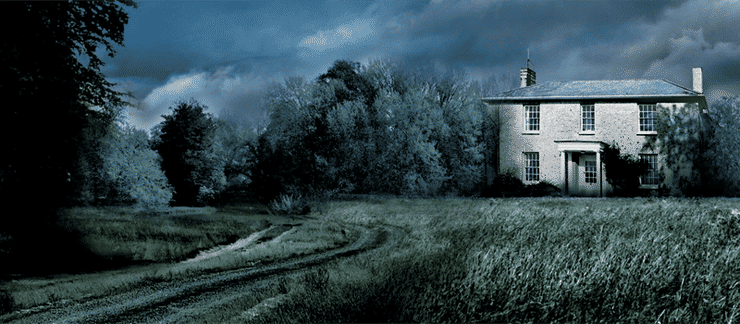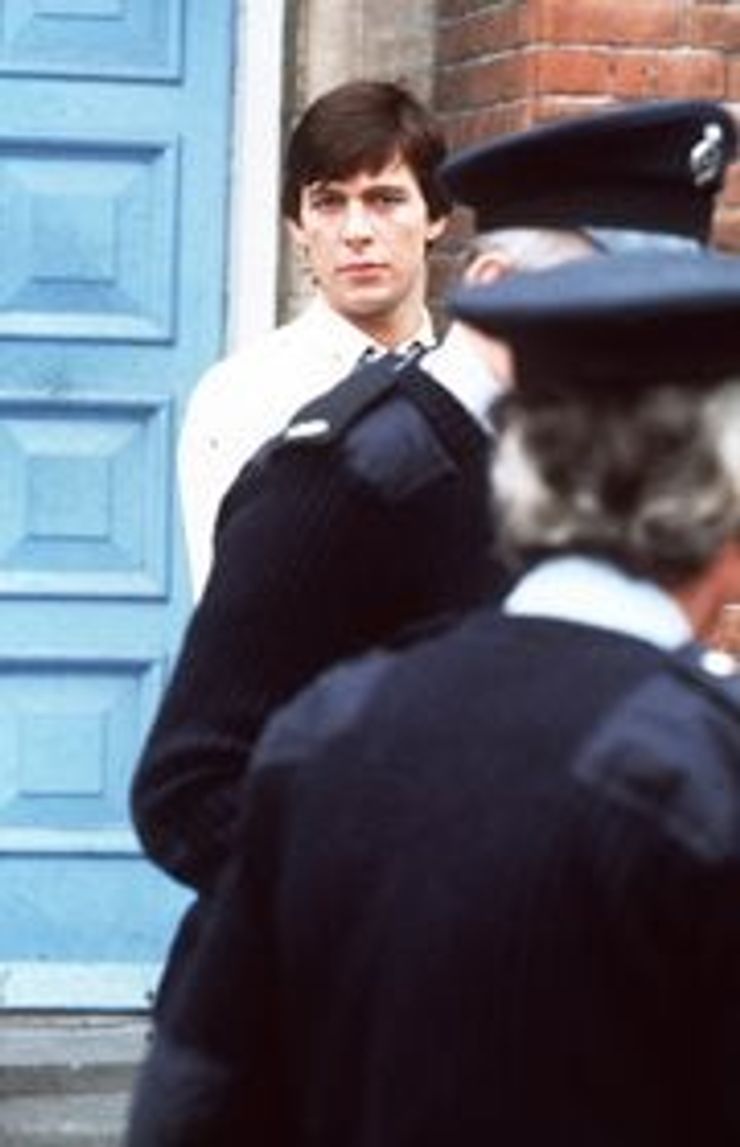Carol Ann Lee on talking to Jeremy Bamber
Before writing her latest book, The Murders at White House Farm, Carol Ann Lee spent three years corresponding with the Jeremy Bamber. The man convicted for killing his entire family...

On 7 august 1985, Nevill and June Bamber, their daughter Sheila and her two young sons Nicholas and Daniel were discovered shot to death at white house farm in Essex. all the windows and doors of the farmhouse were secure, and the Bambers' son, 24-year-old Jeremy, had alerted police after apparently receiving a phone call from his father, who told him Sheila had 'gone berserk' with the gun. it seemed a straightforward case of murder-suicide, but a dramatic turn of events was to disprove the police's theory and Jeremy Bamber was convicted of killing his entire family . . .
Before writing her latest book, The Murders at White House Farm, carol ann lee spent three years corresponding with the Jeremy.
His letters arrive almost every week. The envelopes vary in size and thickness, but the handwriting, always in slanting capital letters, is unmistakable. Opening each envelope reveals his name and prison number where he has written it under the flap: 'Jeremy Bamber, A5352AC.'
My correspondent is one of Britain's longest-serving prisoners, convicted of fatally shooting his parents, sister and her two young sons in 1985. The White House Farm murders are among the most notorious crimes committed within living memory. Three generations of the same family obliterated by one of its own has chilling implications for us all, undermining a fundamental belief about where we are safest; when we lock our doors at night, we do so to keep danger out - home and family are our greatest security. The notion that we can never really know those closest to us is deeply disturbing.

Jeremy Bamber has always protested his innocence. My aim, in writing a book about his case, is both to examine the claims he has put forward and to explore the relationships within the family prior to the violence unleashed in the small Essex village of Tolleshunt D'Arcy that august night. I want to do so neutrally, allowing readers to make up their own minds about Jeremy Bamber, who agrees to answer my questions but declares: 'I believe that you will follow the evidence wherever it takes you - and I also believe that if you do conclude by the end of your research that I am indeed innocent (I am), then you will say so, as you will if you conclude that I am guilty (I'm not).'
For the next three years, we correspond. He pledges at the very beginning: 'I will give you access to the truth' and shares a huge amount of documentation with me from his 'database' of case papers, which he states runs to 'around 3½ million pages.' Mostly he is keen to discuss his ongoing attempts at appeal, and on several occasions is buoyantly optimistic, writing: 'Now some good news. We like good news. Now that my database is done, I'm re-visiting all of my work from victorian times - it feels like that long ago - I'm re-doing everything. Without getting too excited, we now have the key to the gate - I sent it to my solicitor, my office [his campaign team who give their time free of charge], and the IPCC yesterday.' When that fails to lead anywhere, he begins anew, examining other points of contention. He is rarely despondent, convinced that amongst the documents is proof of police corruption. Referring to one official record of events, he insists, 'and that, Carol Ann, is what they call in the trade "perverting the course of justice", and I know, the IPCC know and Essex police know that this is what happened, and in a few days everyone else will know that we know . . .'
I ask him how he copes with the resounding disappointment of being told yet again that he will remain a prisoner. His reply is simple: 'hope. Hope is what makes the difference in me between life and death. Not for freedom, but for the truth to be acknowledged by the courts.' When depression caused by fresh defeat does take hold, he is silent, writing only when the stultifyingly low mood has passed and collecting quotations that renew his confidence. 'The innocent and the beautiful have no enemy but time' (WB Yeats) is one; 'the evil of modern society isn't that it creates selfishness, but that it creates conditions in which people who don't suffer from injustice seem incapable of caring very much about people who do' (Junius) is another.
But gradually, his letters tail off. There are problems in prison for him and a planned visit doesn't happen. In the end, he states baldly that he can 'no longer write meaningful letters' about his case. After that, there is nothing, and then I hear that he has been moved to Wakefield prison after many years at Full Sutton, which is scarcely a five-minute drive from my home. Distant in place and person, he now has to confront the milestone of thirty years in captivity, and thirty years since his family was murdered.
By him? That's for readers to decide.
The Murders at White House Farm
by Carol Ann Lee
Carol Ann Lee's account of the White House Farm murders was the inspiration for ITV's series White House Farm. Nevill and June Bamber, their daughter Sheila and her two young sons were discovered shot to death in their home. All the windows and doors of the farmhouse were secure. The Bambers' son, 24-year-old Jeremy, alerted the police after apparently receiving a phone call from his father who told him Sheila had 'gone berserk' with the gun. At first it appeared to be a straightforward case of murder-suicide, but a dramatic turn of events was to disprove the police's theory and Jeremy was convicted of killing his entire family.



